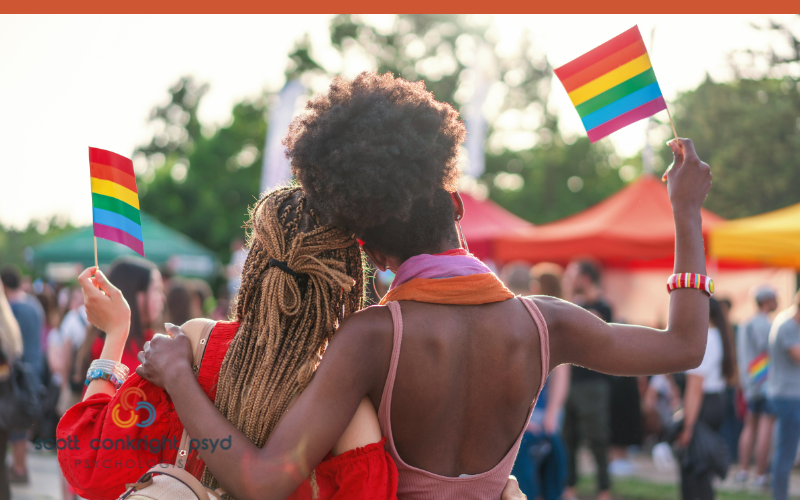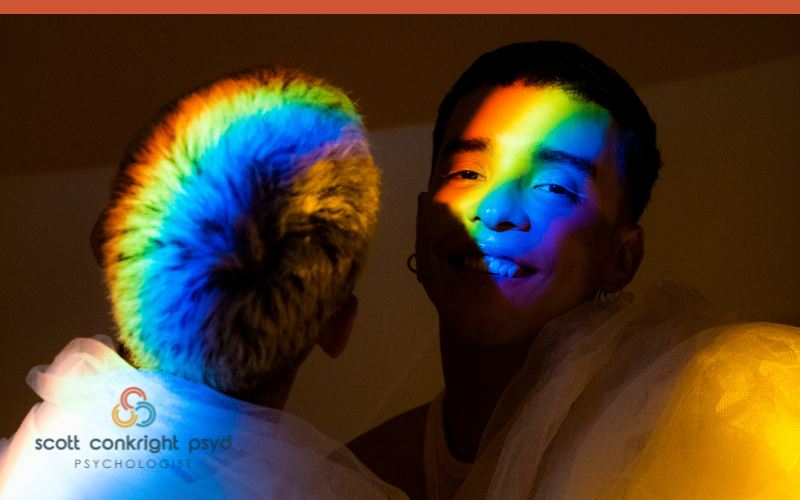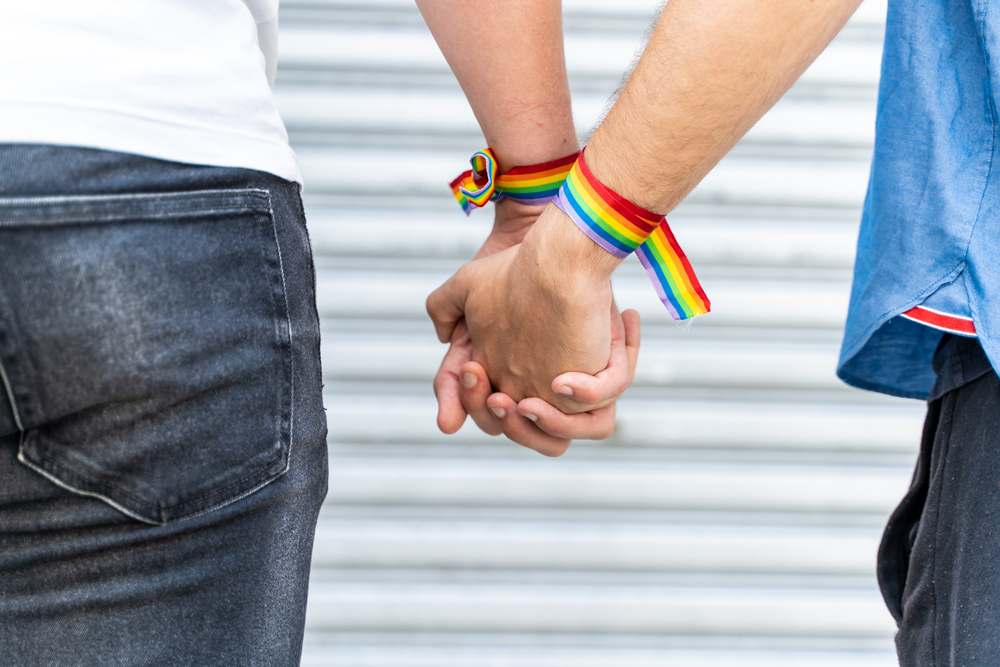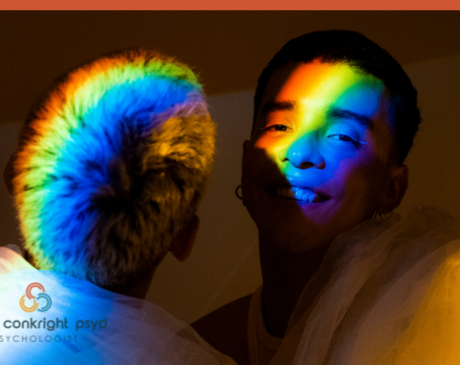How Couples Therapy Can Strengthen LGBTQ+ Relationships in Atlanta

As a therapist deeply committed to the well-being of Atlanta’s LGBTQ+ community, I’ve seen firsthand how the unique challenges faced by LGBTQ+ couples can affect their relationships. While all couples face difficulties, LGBTQ+ relationships often encounter additional stressors related to societal pressures, discrimination, and internalized struggles around identity and acceptance. These experiences, while varied, can place an extra layer of complexity on relationships.
Living in Atlanta, a city known for its diversity and inclusivity, LGBTQ+ couples have access to a welcoming community, yet they also face unique hurdles that can strain their bonds. This is where couples therapy can be incredibly valuable. Therapy not only provides a safe space for couples to address the common relationship challenges like communication and trust but also offers a tailored approach to the specific issues that LGBTQ+ couples often experience.
In this article, I’ll explore how couples therapy can support the growth and resilience of LGBTQ+ relationships in Atlanta, highlighting the specific benefits of therapy for this vibrant community.
Understanding the Unique Challenges of LGBTQ+ Relationships
While every relationship has its ups and downs, LGBTQ+ couples often face unique challenges that can impact the health of their partnership. These challenges may include:
- Discrimination and stigma: LGBTQ+ couples may face overt discrimination, microaggressions, or societal prejudice that can add stress to the relationship. Even in a city like Atlanta, which is known for its LGBTQ+ friendliness, there are still instances of judgment and bias.
- Internalized homophobia or transphobia: Growing up in environments where LGBTQ+ identities were not accepted can lead to internalized negative beliefs, which may manifest in relationships as self-doubt, shame, or difficulty with intimacy.
- Coming out and visibility: Navigating the coming out process, whether individually or as a couple, can be a major source of stress. Partners may have differing comfort levels with visibility, which can create tension.
- Family acceptance: Some LGBTQ+ couples experience rejection or lack of support from their families, which can place strain on the relationship.
- Gender identity and transition: For couples where one or both partners are transgender or non-binary, navigating gender identity and potential transitions can bring additional layers of complexity.
These challenges, combined with the usual stressors of everyday life, can make it difficult for LGBTQ+ couples to maintain a strong, healthy relationship. However, couples therapy offers a space where partners can address these issues together, with the support of a therapist who understands the unique dynamics at play.
How Couples Therapy Supports LGBTQ+ Relationships
In my work with LGBTQ+ couples, I’ve seen how therapy can help strengthen relationships by providing a space to process emotions, build communication skills, and navigate external challenges. Therapy offers a tailored approach to the specific issues that LGBTQ+ couples face, helping partners grow closer and develop a deeper understanding of one another.
Here’s how couples therapy can make a difference:
1. Creating a Safe and Affirming Space
One of the most important aspects of couples therapy for LGBTQ+ individuals is the creation of a safe, nonjudgmental, and affirming environment. In therapy, both partners are encouraged to express themselves openly and honestly without fear of judgment based on their sexual orientation or gender identity. This is especially important for couples who may have experienced discrimination or rejection in other areas of their lives.
As an LGBTQ+ affirming therapist, I ensure that my office is a space where couples can feel fully seen and supported, no matter where they are in their relationship or identity journey. This safe space allows for deeper exploration of the issues that matter most to each partner, whether it’s related to communication, intimacy, or external pressures from society.
2. Addressing Internalized Stigma and Negative Beliefs
Many LGBTQ+ individuals have grown up in environments that were not accepting of their identity, which can lead to internalized homophobia, transphobia, or shame. These negative beliefs can undermine a relationship, as they may result in self-sabotaging behaviors, fear of intimacy, or difficulty fully accepting love and support from a partner.
In couples therapy, we work on identifying and addressing these internalized beliefs. By bringing these thoughts and feelings into the open, partners can better understand how their individual experiences impact their relationship. Therapy provides tools to challenge these negative beliefs, helping both partners develop greater self-acceptance and foster a more supportive, loving relationship dynamic.
3. Strengthening Communication and Emotional Intimacy
As with any relationship, communication is key to maintaining a healthy partnership. However, LGBTQ+ couples may face additional hurdles when it comes to expressing their needs and feelings, particularly if they’ve experienced rejection or invalidation in the past.
Therapy provides a structured space where couples can learn and practice communication skills that strengthen their emotional connection. This includes learning how to listen with empathy, express emotions without fear, and resolve conflicts in ways that respect each partner’s experiences and needs. By building stronger communication, couples can create a more resilient relationship that can withstand external pressures.
4. Navigating Identity and Gender Transitions
For couples where one or both partners are transgender or non-binary, therapy can be especially helpful in navigating the complexities of gender identity. Partners may have questions about how a gender transition will impact their relationship or may struggle to communicate their feelings about gender identity.
In therapy, I work with couples to ensure that both partners feel supported and understood during this process. Whether it’s addressing concerns about physical changes, navigating social or family dynamics, or exploring questions about intimacy, therapy provides a space for partners to explore these topics together. This helps couples remain connected and supportive of one another, even as they navigate major life transitions.

5. Coping with Discrimination and External Stressors
Unfortunately, LGBTQ+ couples are often faced with external stressors like discrimination, microaggressions, or lack of acceptance from family or community members. These stressors can take a toll on the relationship, leading to feelings of isolation, frustration, or emotional exhaustion.
In couples therapy, we focus on building resilience in the face of these challenges. This might involve developing coping strategies for dealing with external stress, finding ways to support each other through difficult times, or setting boundaries with unsupportive family members. By addressing these external pressures, couples can create a stronger, more united front and maintain a sense of safety and security within their relationship.
6. Strengthening Commitment and Trust
For LGBTQ+ couples, trust and commitment can sometimes be complicated by the pressures of coming out, navigating visibility, or dealing with past trauma. Therapy helps couples build and maintain trust by creating a space where partners can express their fears and vulnerabilities without judgment.
Through open, honest dialogue, couples can explore the factors that may be impacting their trust and work together to strengthen their commitment. Whether it’s navigating the challenges of long-term relationships, managing differences in comfort levels with visibility, or dealing with past hurts, therapy provides the tools needed to build a lasting foundation of trust and intimacy.

Embracing the Strength of LGBTQ+ Relationships
LGBTQ+ relationships in Atlanta are as diverse and dynamic as the community itself. While these relationships may face unique challenges, couple counseling in Atlanta offers a powerful opportunity for couples to deepen their connection, strengthen communication, and overcome external pressures.
By providing a safe, affirming space, couples therapy helps partners explore the complexities of their relationship and develop the skills needed for long-term success. Whether you’re navigating issues around identity, communication, or external stress, therapy can provide the guidance and support you need to build a stronger, more fulfilling partnership.
Don’t wait to strengthen and support your relationship. Together, we can create a path forward that honors your unique experiences and helps you build the love and connection you deserve.
Contact me, Dr. Scott Conkright, today to schedule a consultation.
(404) 315-7150
SCOTT CONKRIGHT, PSY. D., P.C.




// Comments are closed //